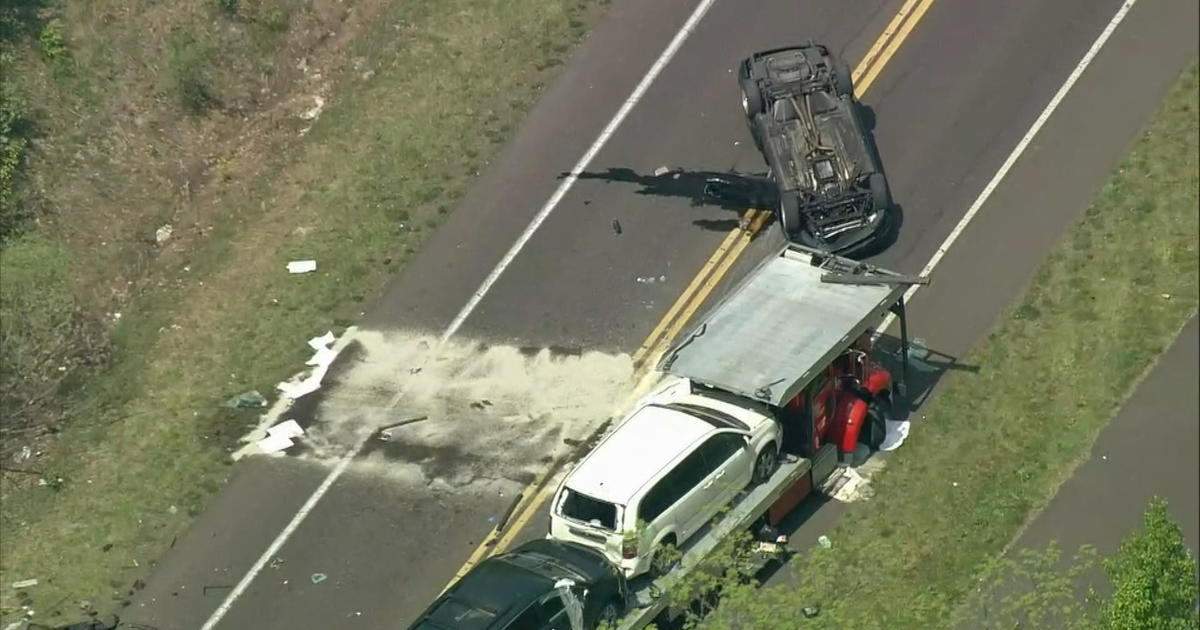What to do if you encounter wildlife
PITTSBURGH (KDKA) - Last week, a story emerged about two children in eastern Pennsylvania who were injured in an encounter with a black bear.
There are an estimated 18,000 black bears in Pennsylvania, and when they come around people, it gets everyone's attention.
There was another incident over the weekend in Minnesota when a woman startled a bear around midnight when she went into her yard to retrieve her dog. She will recover. Most encounters that cause harm involve male bears, and if you see any bear, back off and maybe grab your camera.
It takes a lot of energy for a bear to move around 250 to 400 pounds.
"They're always hungry. They're always looking for an easy meal," according to retired Pa. Game Commission Wildlife Conservation Officer Gary Fujak. And in our neighborhoods, we lay out the inviting spread.
"Bird feeders and garbage would probably be the way to go."
Fujak says at their core, bears know to fear humans.
"They want to keep their distance from humans. That's why we've been able to coexist for all these years."
Fujak has seen people handle bear encounters the right way and the wrong way.
"Just keep your distance from the bear. Don't do anything stupid. Don't approach them. Just keep a safe distance," Fujak added.
Fujak says most people will never see a bear up close. If you do, grab your camera.
"Get your phone on videotape. And take photographs, but don't approach it; give it plenty of room," Fujak said. "One of the cardinal rules that you don't want to do with Pennsylvania wildlife, they're wild animals, you never want to feed them."
That attracted a bear to a Monroeville neighborhood a few years ago. Someone was putting out food and trying to take selfies with the bear.
If you want the bear to leave, should you make a lot of noise? Yes. Some people will bang pot lids. Fujak says raise your hands, scream, and yell, and the bear will probably move along.
The animal world cuteness factor is in high gear right now. Baby bunnies, raccoons, deer, and birds are everywhere.
What do you do if you encounter one of the little critters and think it might be in trouble? Like almost everything involving baby animals, what happens is out of our control.
The fawns with their spots are out there now, and sometimes, you'll find one alone and calling for its mom.
"It can be very vocal, but the last thing you want to do is touch it. Definitely don't be trying to give it water; they don't need any of that," Fujak says.
Fujak says does often leave their young to forage for food but know where they are and will return. The same is true for baby birds that find themselves on the ground.
"Keep your distance and let the parents come and feed, and eventually, it'll hop on a low-lying branch of the tree, and it'll be fine."
Fujak says to steer clear of baby raccoons or kits, no matter the temptation.
"They are cuddly, and you want to hold them, and they can look perfectly healthy, but they can still be infected with rabies," said Fujak.
While baby bunnies are less of a threat, Fujak added that they fall into the same category as the others.
"When it comes to wildlife, you never want to touch it. You don't want to feed wildlife. Keep your distance; it's not a good thing for humans or wildlife, and they'll be fine without us."
Fujak adds that when you intervene and pick up one of the little ones and take it home to try and nurse it to good health, you have just created an orphan, and it rarely works out well for the wildlife.
So, you're just supposed to walk away? Yes.
The parents will take care of it, or mother nature will take its course, but Fujak says people rarely create a positive outcome.




